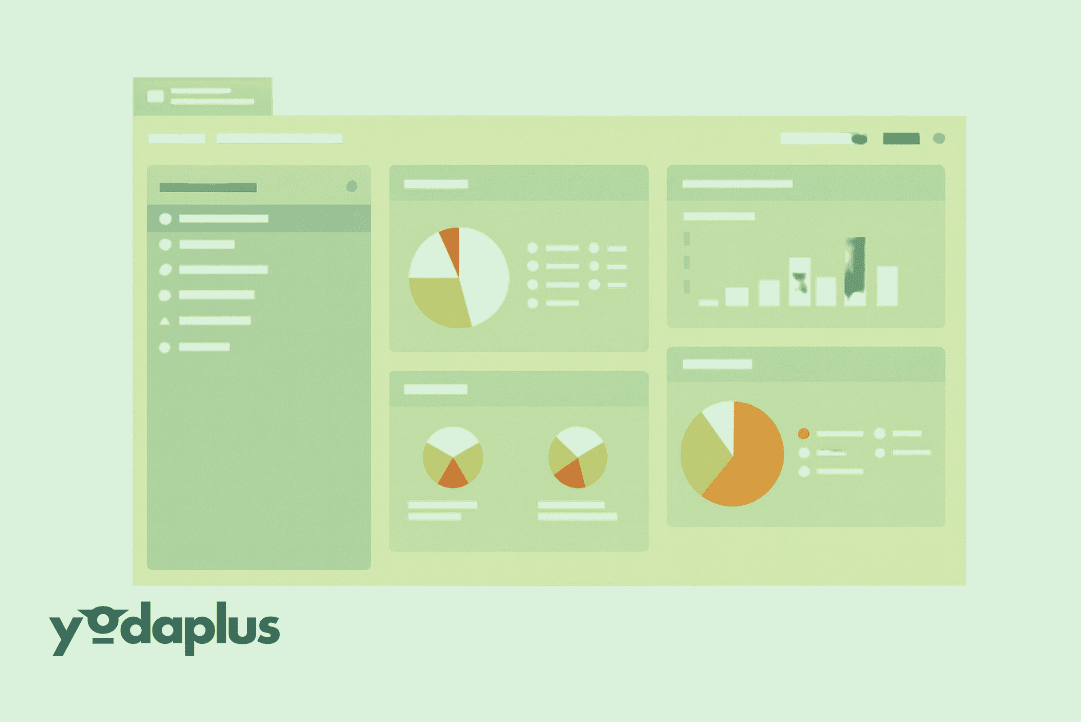
Analyzing Regulated Sectors: Financials, Energy, and Financial Forecasting
September 23, 2025 By Yodaplus
Equity research often begins with a simple question: how do companies in regulated industries perform compared to those in more flexible markets? To answer this, analysts create an equity research report that captures both numbers and narratives. When dealing with financial services, energy, and other regulated sectors, the process of equity research becomes more complex. These industries are tied to policies, compliance requirements, and economic cycles that shape their performance.
In this blog, we look at how analysts approach equity analysis in regulated sectors, what makes them different, and how tools such as AI for data analysis are changing the way professionals prepare an equity research report.
Why Regulated Sectors Need Careful Analysis
Regulated industries like banking, insurance, oil, and gas cannot be studied only through quarterly financial reports. Government rules, global frameworks, and compliance policies directly influence their earnings and risks. For instance, investment research on banks requires analysts to factor in capital adequacy ratios, liquidity rules, and macroeconomic conditions. In the energy sector, environmental laws and geopolitical factors play a decisive role in long-term valuations.
This is why investment analysts, financial advisors, and portfolio managers pay special attention to these industries. They rely on analyst reports and equity research reports that highlight not just earnings but also risks tied to regulation.
Equity Research in Financials
The financial sector is the most common example of a regulated industry. Banks, asset management firms, and insurers all work under rules that affect their capital, risk management, and reporting. Analysts must evaluate financial reports, audit reports, and compliance data to measure performance.
For example, equity research automation tools can now scan annual reports and highlight trends in revenue, loan growth, or risk exposure. This helps a financial data analyst prepare faster equity research reports with fewer errors. These tools also provide portfolio insights that allow wealth managers and financial consultants to understand how banking stocks behave under stress tests.
Key metrics often include portfolio risk assessment, market risk analysis, and liquidity ratios. In this context, AI for equity research and ai report generator solutions are becoming essential. They provide real-time data points and save time for analysts who would otherwise spend hours combing through spreadsheets.
Energy and Utilities: A Different Landscape
Energy, oil, and utilities are also heavily regulated, but the factors differ from finance. Here, compliance is driven by environmental standards, safety laws, and geopolitical risks. Equity research in this space often requires scenario planning, since government decisions can change market directions overnight.
For example, an equity research report on an oil company must consider not only production volumes but also carbon taxes, emission rules, and renewable energy adoption. Macroeconomic outlook and geographic exposure also play a critical role in determining valuations.
For asset managers and wealth advisors, understanding these variables is vital before allocating capital to energy stocks. Strong risk analysis and risk mitigation strategies are a must for any portfolio that carries exposure to oil or utilities.
Beyond Financials and Energy
Other regulated sectors like healthcare, telecom, and aviation also pose challenges for investment research. Analysts preparing equity analysis in these industries must combine fundamental analysis with an understanding of licensing, policy, and global standards.
Financial consultants often review audit reports and sector-specific compliance documents to support investment strategy decisions. Equity research automation platforms now provide tools for financial risk assessment and performance measurement that help analysts test multiple assumptions quickly.
The rise of ai data analysis has made it easier to evaluate financial modeling scenarios, run sensitivity analysis, and assess valuation methods under different regulatory regimes.
Role of Technology in Equity Research
Technology is reshaping how analysts work across sectors. Traditional reports used to take weeks to prepare, but now ai report generator platforms and equity search automation tools create accurate insights within hours.
These solutions not only reduce errors but also help investment analysts and portfolio managers adjust strategies in real time. For example, market trends, market share analysis, and profitability analysis can be automated with data feeds, while humans focus on drawing conclusions.
In addition, equity research software provides dashboards for financial advisors, wealth managers, and asset managers to assess investment insights and track the equity market outlook. This supports better financial forecasting, revenue projections, and liquidity analysis.
Risks and Opportunities
Regulated sectors carry higher compliance costs and stricter monitoring, but they also provide stability in volatile markets. Investors looking at banks or utilities see them as lower-risk long-term holdings compared to emerging tech firms. Still, portfolio managers must rely on detailed equity research reports to evaluate the right entry points.
The future will see more use of AI for data analysis, ai for equity research, and financial research tools. These technologies will make risk mitigation, trend analysis, and scenario analysis more precise. The role of the financial data analyst is evolving from preparing static spreadsheets to interpreting outputs from intelligent systems.
Conclusion
Analyzing regulated sectors like financials, energy, and beyond requires a balance between traditional equity research methods and modern AI data analysis. Analysts, financial advisors, and asset managers must combine compliance knowledge with technology to produce effective equity research reports.
With equity research automation and AI report generator platforms such as GenRPT Finance, the focus is shifting from manual reporting to insights and strategy. In a world of stricter rules and higher scrutiny, this evolution ensures that equity analysis remains relevant, accurate, and actionable for portfolio managers, wealth advisors, and financial consultants.